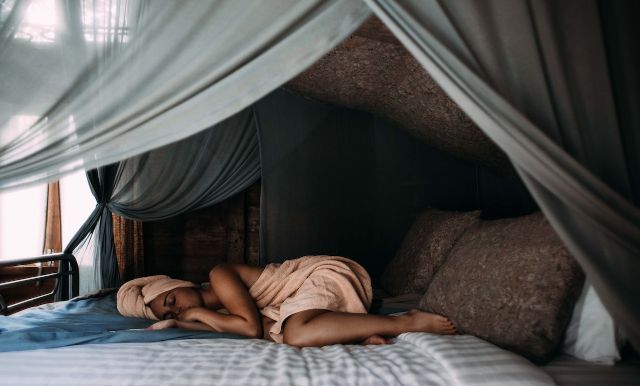
"Sleep: A Key Factor for Good Mental Health"
For our physical, emotional, and mental health, sleep is a fundamental human requirement. The majority of people are aware of the need of obtaining enough sleep for their general health, but many are unaware of the profound effects it may have on their mental health. We shall examine the connection in this blog.
Sleep and Mental Health: The Connection.
1Mental health and sleep are intimately related. In addition to raising the risk of mental health disorders like depression, anxiety, and bipolar disorder, sleep disturbances can have a considerable negative influence on mental health. These illnesses are frequently accompanied by sleep issues like insomnia, sleep apnea, and restless legs syndrome.
According to research, sleep deprivation can make mental health issues’ mood swings, anger, and anxiety worse. On the other hand, getting adequate restful sleep can help reduce these symptoms, resulting in greater mental health and a higher standard of living in general.https://www.mind.org.uk/information-support/types-of-mental-health-problems/sleep-problems/about-sleep-and-mental-health/#:~:text=There’s%20a%20close%20relationship%20between,Worrying%20leads%20to%20poor%20sleep.

The Importance of Sleep for Mental Health.
Getting enough good sleep is crucial for preserving mental wellness. Lack of sleep can cause increased tension, worry, and depression because sleep regulates mood and emotions. Chronic sleep deprivation can also alter how the brain functions, resulting in decreased attention span, memory loss, and diminished cognitive performance.
Additionally essential to controlling the body’s stress response mechanism is sleep. Our bodies release chemicals that aid in stress and anxiety management while we sleep. Lack of sleep can cause this mechanism to malfunction, which heightens stress and anxiety.Sleep also supports immune system regulation, which is essential for preserving mental health. Lack of sleep can erode the immune system, leaving us more vulnerable to illnesses that might affect our mental health.Sleep also supports immune system regulation, which is essential for preserving mental health. https://www.sleepfoundation.org/mental-health
Tips for Improving Sleep.
If you are struggling to get enough quality sleep, there are several things you can do to improve your sleep hygiene:
Stick to a regular sleep schedule: Try to go to bed and wake up at the same time every day, even on weekends.
Create a relaxing bedtime routine: Engage in relaxing activities before bed, such as taking a warm bath or reading a book.
Limit exposure to screens: Avoid using screens, such as smartphones and computers, for at least an hour before bed.
Avoid caffeine and alcohol: Caffeine and alcohol can disrupt sleep and should be avoided in the evening.
Make your sleep environment conducive to sleep: Ensure your bedroom is cool, dark, and quiet.https://www.health.harvard.edu/newsletter_article/sleep-and-mental-health
Conclusion.
Sleep is essential for good mental health. Getting enough quality sleep can help regulate mood, reduce stress and anxiety, and improve cognitive function. If you are struggling with sleep, try incorporating some of the tips above to improve your sleep hygiene. Remember that good mental health starts with good sleep, so prioritize getting enough quality sleep to support your overall well-being.https://www.columbiapsychiatry.org/news/how-sleep-deprivation-affects-your-mental-health


Pingback: Yoga for Mental Health